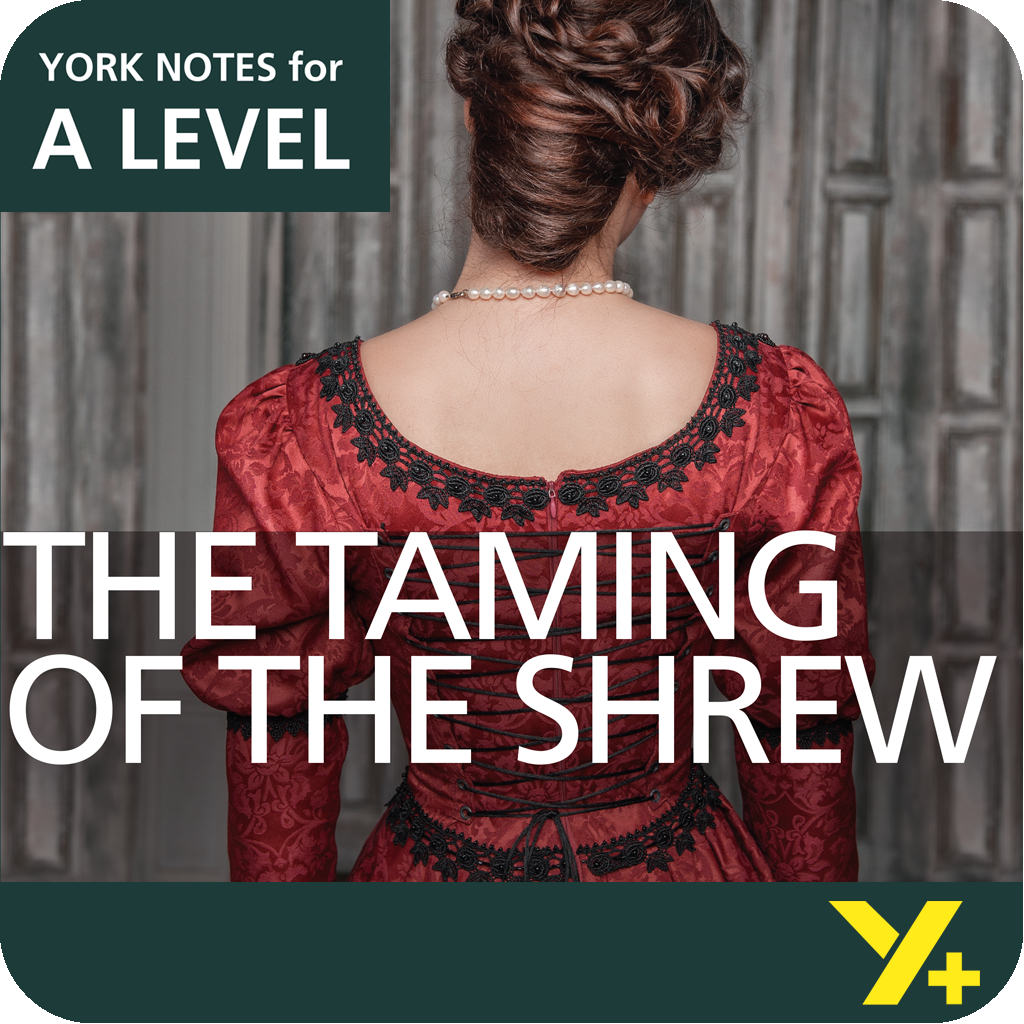Examiner's Notes
You assessed this answer as a High.
Hover over the highlighted text to read the examiner’s comments. These are linked to the Assessment Objectives, which are listed in the side panel.
However I think Shakespeare is also using this episode to show us something new about the characters of Katherina and Petruccio, which ties in with his theme of real and false love in the play. At the beginning of the scene Katherina was angry and disappointed when Petruccio failed to arrive; that was the first suggestion that she would perhaps like to be married to him. Now they are married Katherina wants the dignity of a bride at the head of the table – the way she addresses the guests as ‘gentlemen’ when telling them to go to the feast shows this. When Petruccio refuses to go she shows the same anger she showed to Hortensio and Gremio at the start of the play. Petruccio is not ruffled by this. He agrees that she can order the guests to the dinner but that she must go with him. She is silent for the rest of the scene. This is an important change for Katherina. She has always stood up for herself, but everybody ignored her. Now Petruccio takes notice of her, but is also setting boundaries. The silence suggests that she is shocked. She will not be confidently talkative again until the end of Act IV, after the argument about the sun and the moon – in other words, she will only talk when she has learned to cooperate with Petruccio, however ridiculous his orders.
However, I agree with the critic Alexander Leggatt that Petruccio is not being cruel but paradoxical – his behaviour is teaching her that social conventions like this feast matter to her more than she thinks. Shakespeare balances this section to make Petruccio’s actions show this. On the one hand he is polite to Katherina, asking her not to be angry and telling everyone to ‘obey the bride’ as if he recognises she has rights. On the other hand he is rude to everyone else. He shouts at them as if they did not know how to behave at a feast and accuses them of wanting to kidnap his ‘bonny Kate’. He is doing this to make his quarrelsome bride long for a more orderly life. But it may also reflect his opinion of the other characters’ hypocrisy. They are not happy for Katherina. Gremio sneers as if he thinks the marriage is a joke, Bianca and Lucentio play at tutor and pupil, and Baptista seems glad to be rid of her. When Petruccio invokes the Bible by calling Katherina ‘my goods, my chattels’ he is doing two things. He is letting her know that she is a wife now. At weddings in Shakespeare’s time a wife promised to ‘obey’. But he is also saying to the others that he is serious about this marriage, and implying that they are not.
The way he behaves is comic, ranting and waving a sword in his absurd clothes, but it also makes us think. We know that he likes to perform and show off – his pompous speech in the first act about hearing ‘lions roar’ makes this clear, just as Katherina’s rude rhymes about Hortensio at her first entrance in the play show that she is using her shrewish persona to deal with the cruel jokes that come her way. Petruccio’s play-acting dramatises to Katherina how unpleasant her shrewish ways can be, but when he shouts at the wedding guests as he carries her off it also shows her that performing can be fun. Performing her speech at the end of Act V allows Katherina the freedom to puncture the self-satisfaction of her sister, and make Hortensio, who has always been rude to her, lose his money. I think that throughout this episode Shakespeare is dropping hints about the nature of relationship he will explore later. At the end of the play Katherina and Petruccio have something real between them. The others do not. Although they may make romantic speeches, Bianca and Lucentio are an image of false love and it is significant that in this scene Lucentio is dressed as someone else and Bianca grabs a chance to ‘bride it’ at Katherina’s expense. At the end I think that we see Katherina and Petruccio in harmony, an image of a real if unromantic love that makes the play a true comedy.
